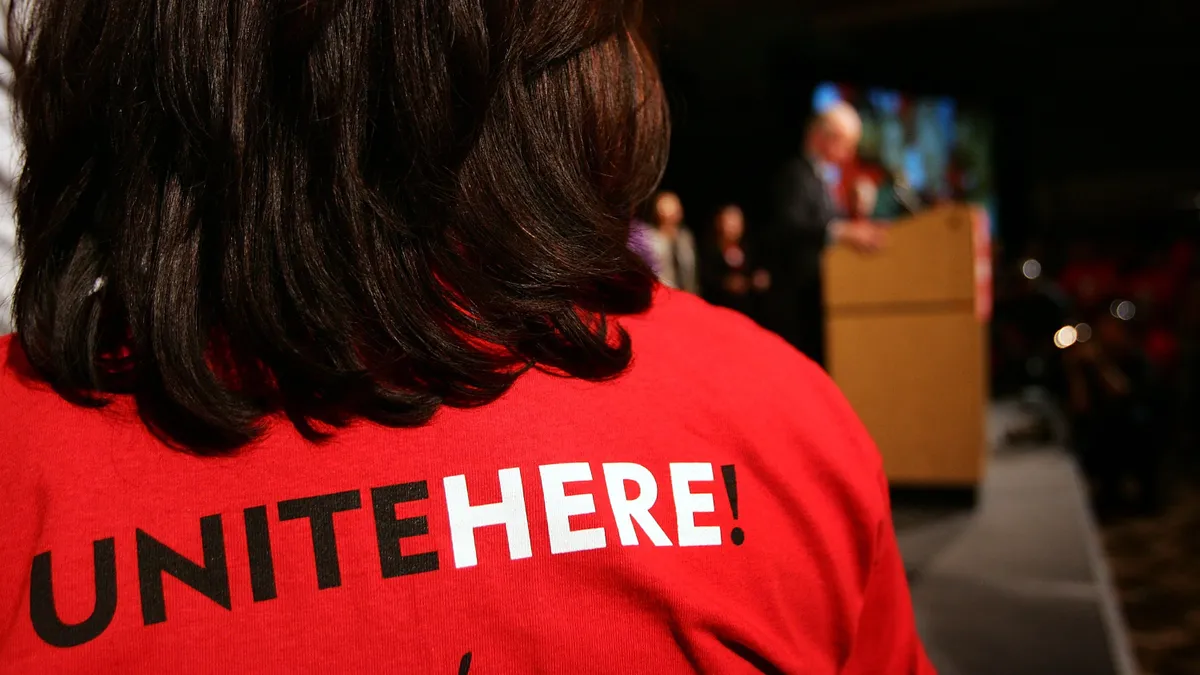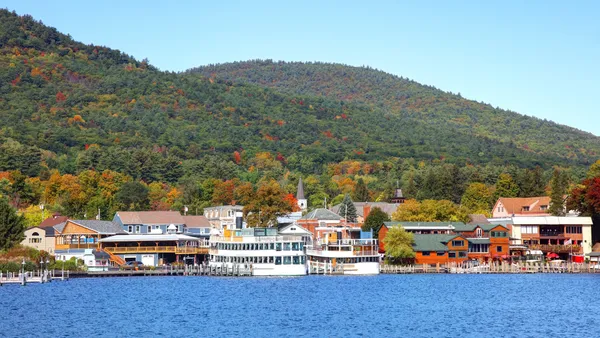Dive Brief:
- Hotel workers in Culver City, California, submitted an initiative that would guarantee a $25 per hour minimum wage and take steps to protect room attendants against sexual assault, the hotel workers’ union Unite Here Local 11 announced in a statement Thursday.
- The hotel workers are calling for hotels to install panic buttons in rooms where attendants may work alone, as well as additional security protocols to protect them from inappropriate conduct by guests and the threat of sexual assault.
- The initiative follows several similar moves across California amid a wave of union activity in the region’s hospitality space.
Dive Insight:
In addition to a minimum wage of $25 per hour, hotel workers in Culver City are asking for an increase to $30 by 2028, when Los Angeles will host the Olympics. They are also asking for fair pay for room attendants with heavy workloads and to prohibit mandatory overtime after 10 hours.
“Our wages are not keeping up with inflation and skyrocketing rents,” said Pedro Morales, a houseperson at The Shay, Culver City, which is managed by Hyatt. “We opened up this hotel in the middle of the pandemic. Culver City hotels are booming. We need $25 an hour to survive.”
In April, Los Angeles City Council members introduced a motion to raise the minimum wage to $25 for the city’s hospitality and tourism workers — though the motion drew criticism from area hotel owners’ associations.
In March, hotel workers in nearby Rancho Palos Verdes submitted an initiative similar to Culver City’s that would offer the same protections to those employed at the Terranea Resort, according to the release.
Lowe, a real estate company, owns the Terranea and The Shay along with joint venture partners. In November 2019, the Terranea Resort spent more than $1 million to defeat a similar initiative in Rancho Palos Verdes. Last year, the resort paid $1.5 million to workers after it violated California’s return to work law.
“The tourism industry’s workforce is overworked and underpaid,” said Kurt Peterson, Unite Here Local 11’s co-president, in the statement. “Hyatt and Robert Lowe and his sons have made a fortune off the backs of hard-working room attendants. Culver City needs to hold them and other hoteliers accountable. A living wage and safe working conditions are a starting point.”
The push to install panic buttons to protect workers in hotel rooms has gained momentum in recent years. In 2018, the American Hotel and Lodging Association asked member hotels to enhance staff safety with its 5-Star Promise, which asks hotels to install employee safety devices as well as provide ongoing training on reporting sexual harassment. Municipal councils have passed hotel worker protection ordinances mandating safety devices in Glendale, Santa Monica and Long Beach, California, as well as Seattle.
Surveys have shown 8 in 10 hotel workers have been harassed at work, The Nation reported in 2015. And among harassment claims submitted to the U.S. Equal Employment Opportunity Commission between 2005 and 2015, the largest number of claims came from the accommodation and food services industries, according to the Center for American Progress.
In recent months and years, hotel worker protection ordinances have passed in Los Angeles, Oakland, Santa Monica, Emeryville, Glendale, Long Beach and Irvine.
Hyatt Hotels & Resorts and Lowe did not respond to Hotel Dive’s requests for comment.











